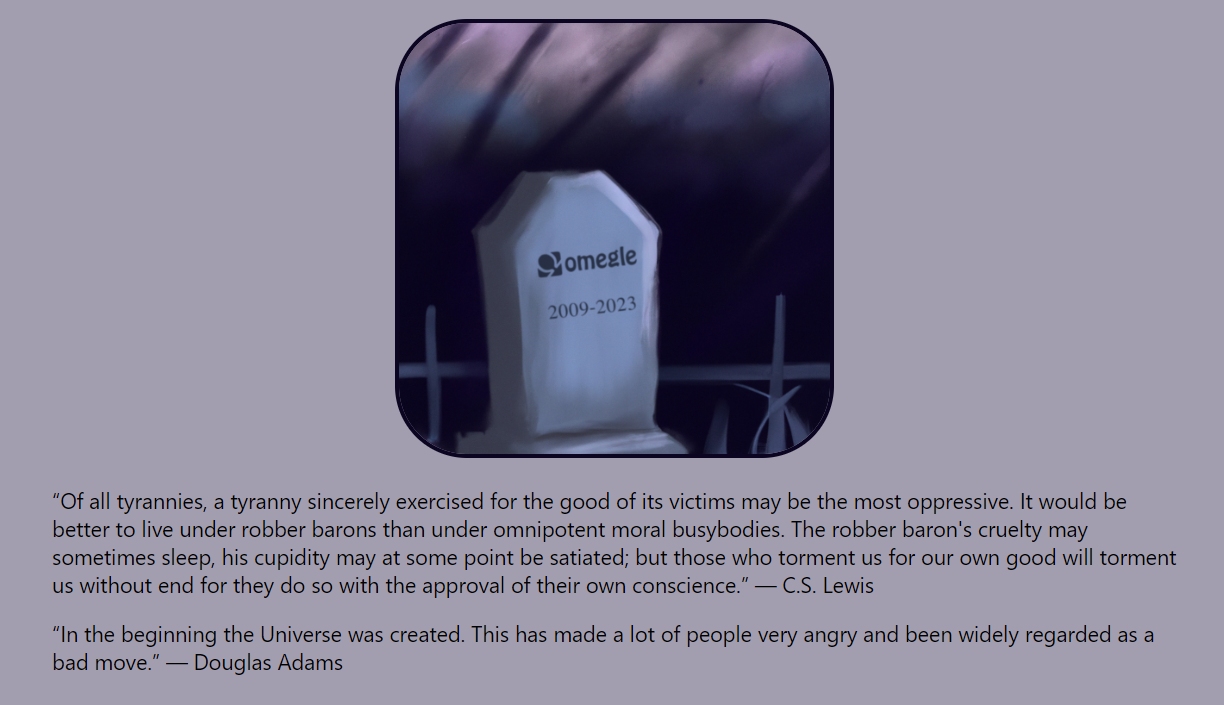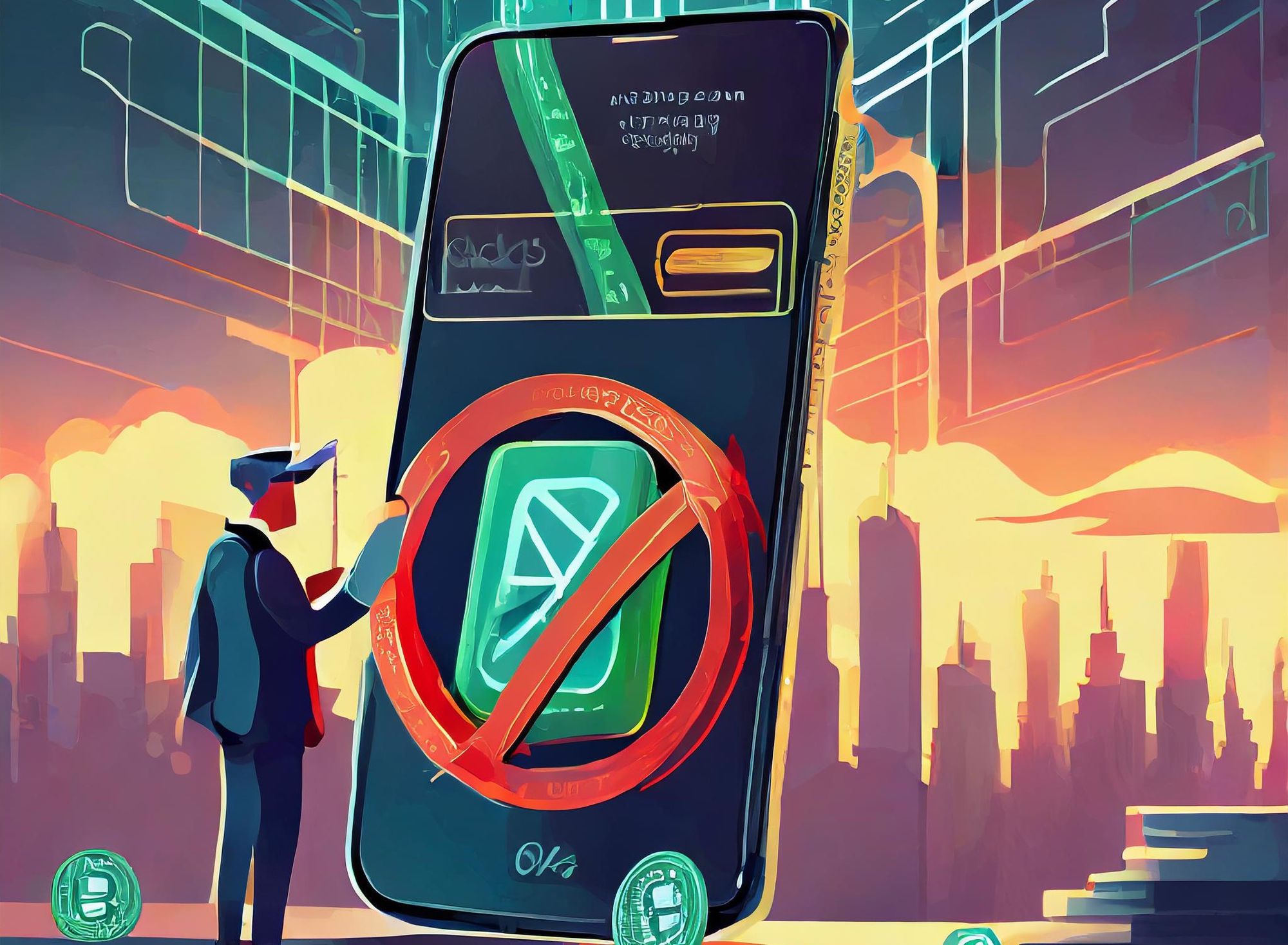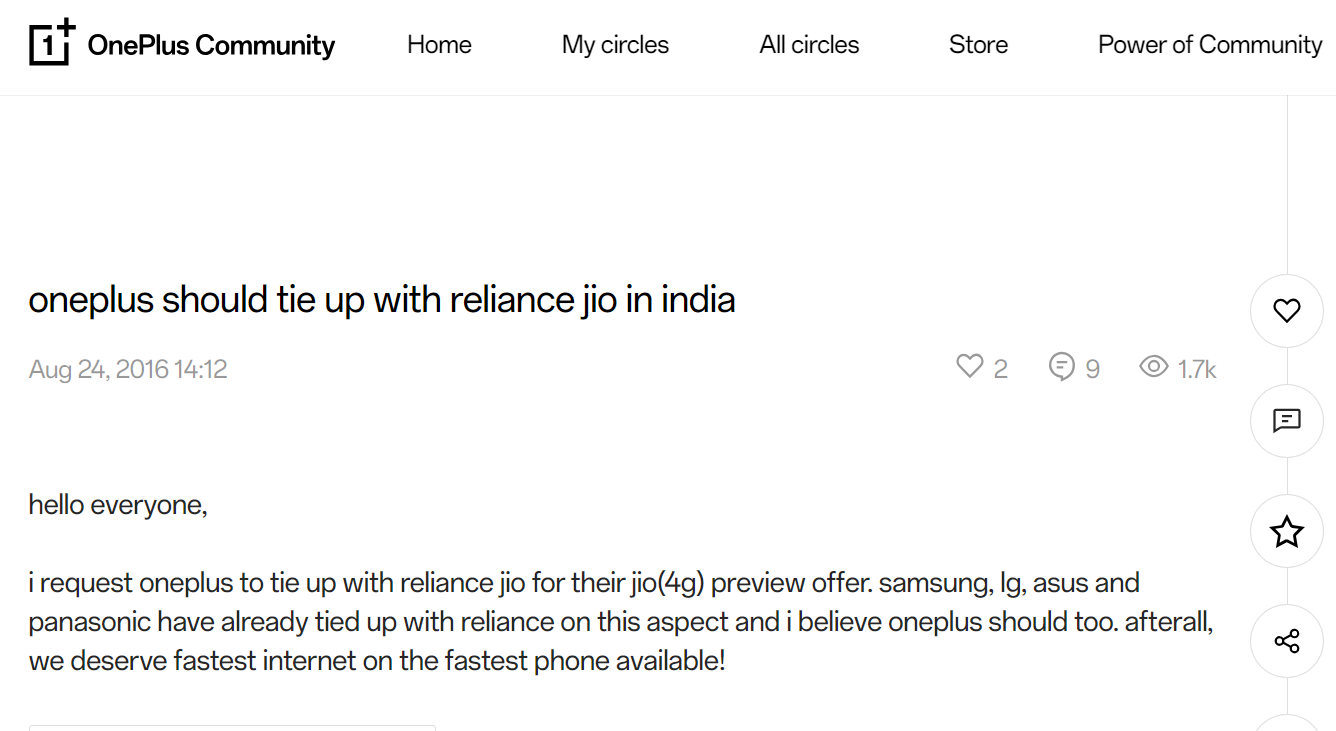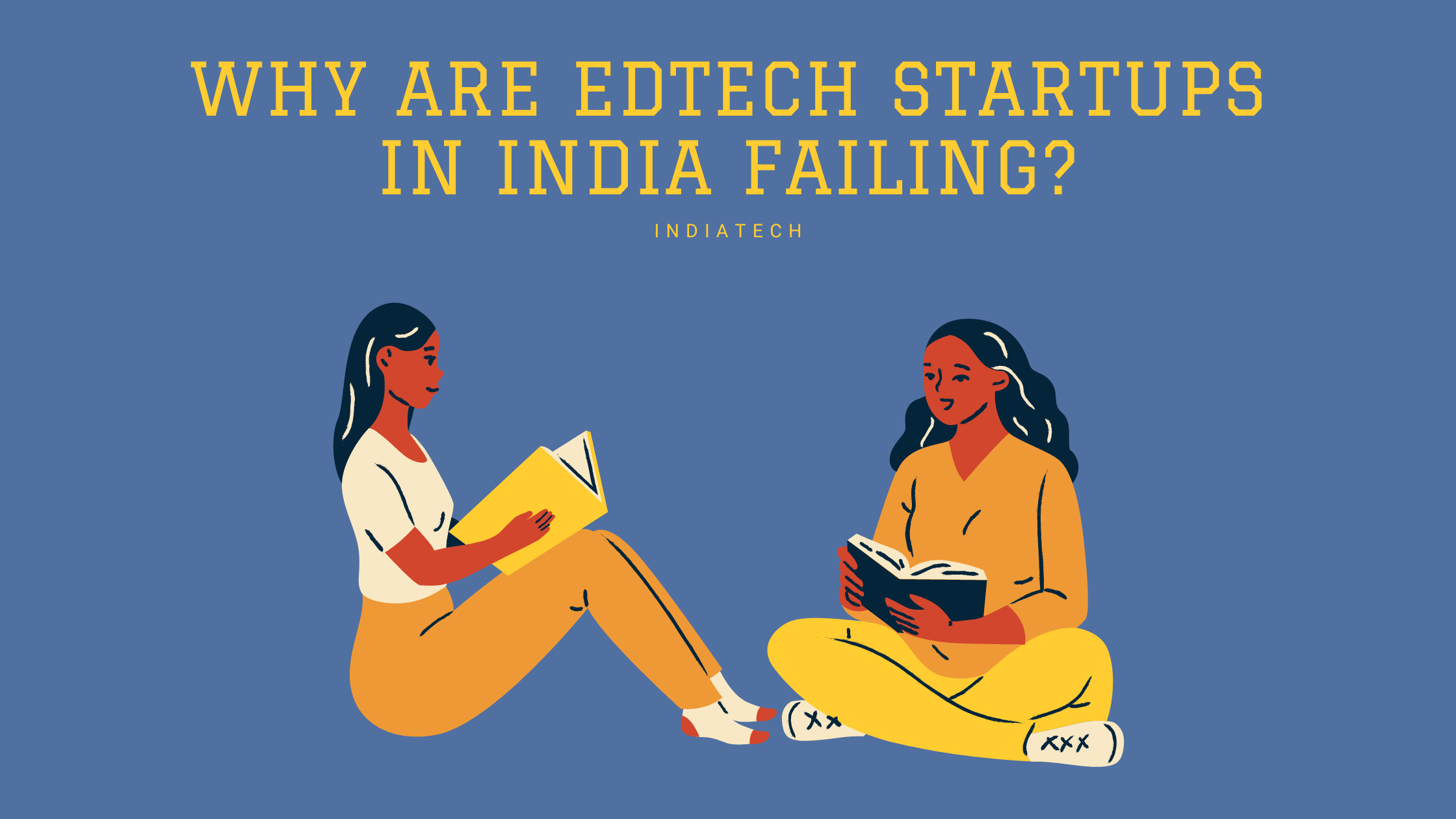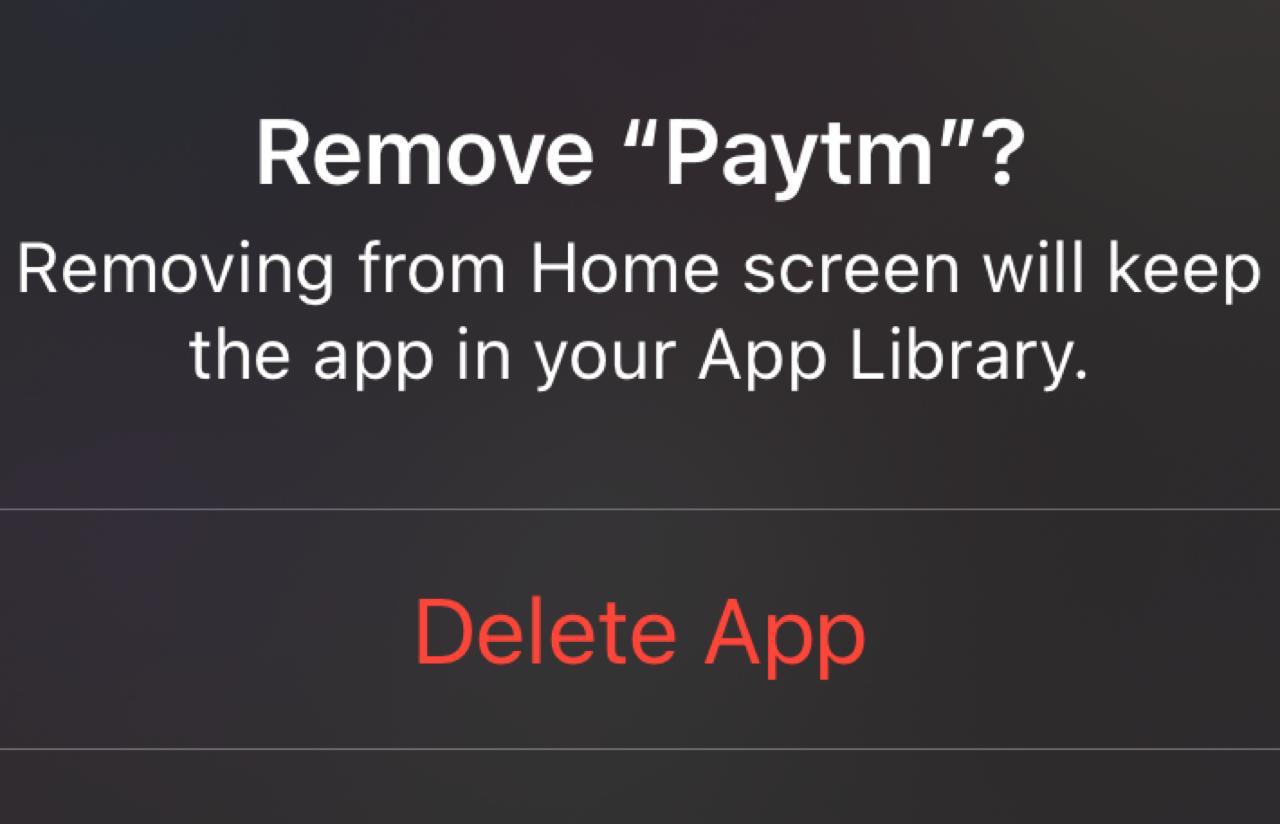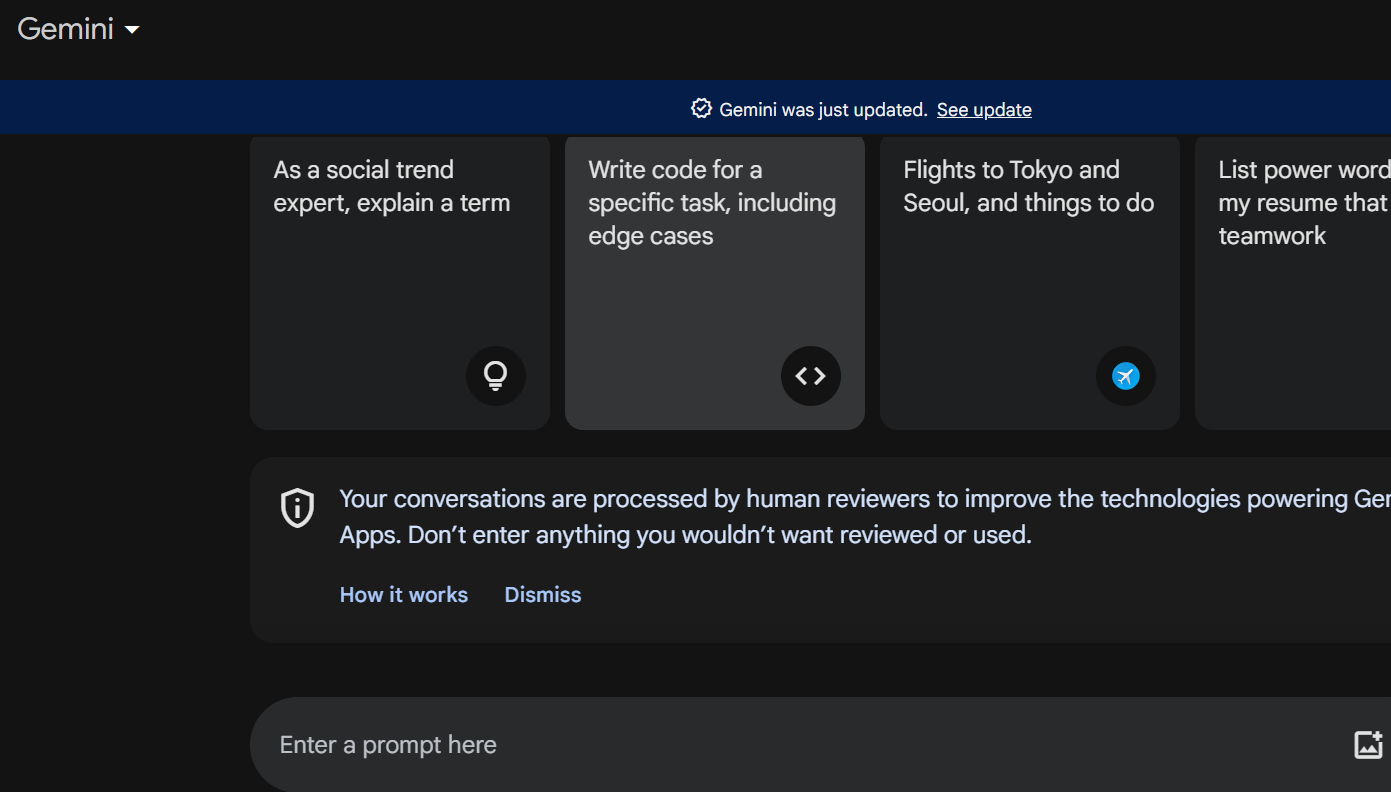Table of contents
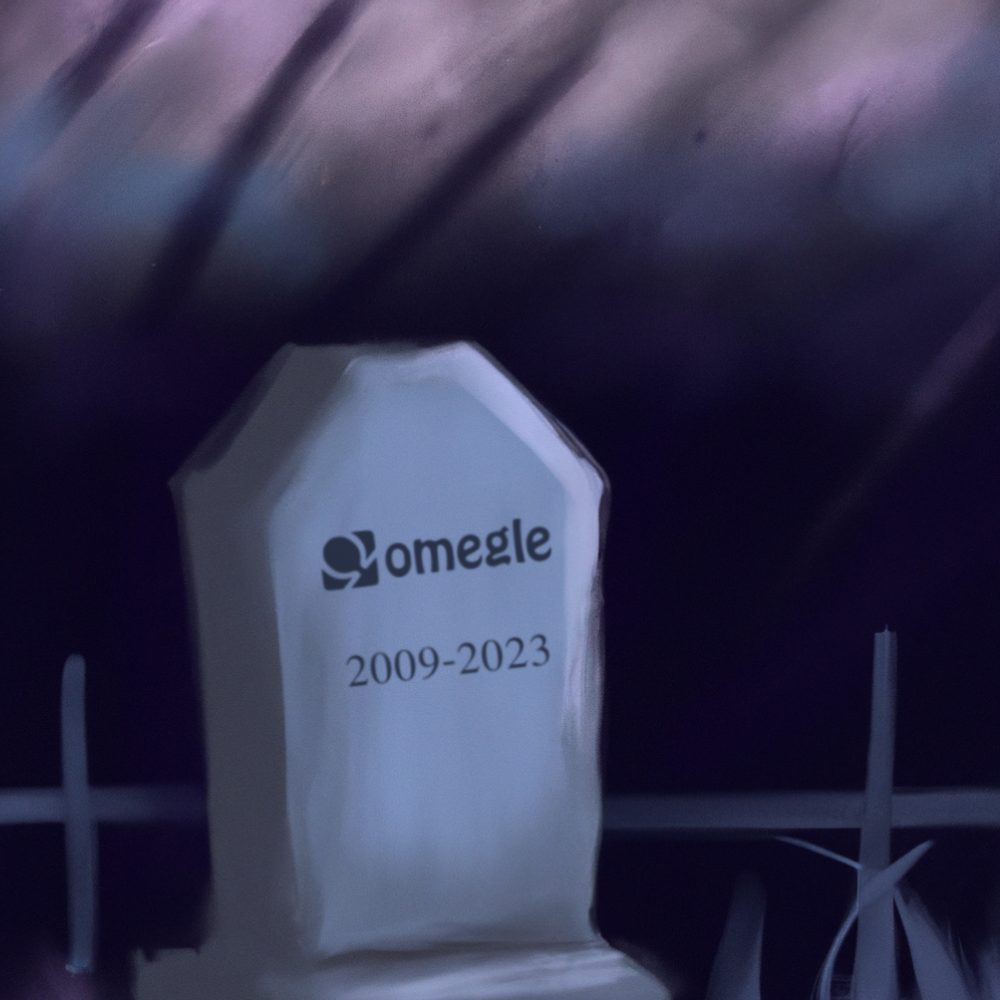
Omegle, the popular anonymous video chat website, has officially shut down its operations after 14 years of connecting strangers all over the world. Leif K-Brooks, the company’s founder, announced the closure, offering insight into the obstacles and stresses that led to this decision.
Source: (1)
Source: (2)
Omegle first appeared in 2009 as a breakthrough platform that allowed users to converse with strangers without disclosing personal information. The simplicity of its principle, randomly pairing people for text and then video chats, contributes to its rapid appeal.
However, the side was not without controversy, including instances of inappropriate use and criminal activity. K-Brooks reminisced about the internet’s magic that captivated him as a child in a poignant letter to Omegle’s user community.
Growing up in a tiny town, the internet provided access to various views, interesting people and a broader perspective. Omegle, founded when K-Brooks was only 18, aims to capture the spontaneity of social interactions online, generating a sense of the “global village.”
The platform’s success was rapid, gaining millions of daily users and becoming a go-to destination for individuals looking for new connections. The beauty of Omegle was its anonymity, users could converse without exposing their names, providing a unique and self-contained chat experience.
It became a place for cultural inquiry, advice-seeking and loneliness relief, with stories of soulmates meeting on the site. However, like many tools, Omegle's versatility allowed for positive and negative feedback, applications and usage.
K-Brooks admitted that the site has been abused, including cases of terrible crimes. Omegle created robust moderation to address these difficulties, combining cutting-edge AI with a dedicated staff of human moderators.
The site aggressively engaged with law authorities and groups such as the National Centre for Missing and Exploited Children, which helped to apprehend wrongdoers. Despite these attempts, the site has recently been subjected to increased attacks.
K-Brooks observed that, despite claiming to seek changes, these attacks appeared destructive, rather than constructive. He bemoaned the broader trend of rising antagonism on the internet, calling into doubt the viability of services like Omegle in the face of constant scrutiny.
K-Brooks underlined the necessity of responsible internet use and the need to strike a balance between protecting safety and safeguarding online freedom. He called attention to a larger societal trend, presumably driven by global events in which people have grown quicker to attack and slower to acknowledge common humanity.
Omegle, like other messaging apps, became one direct target of these attacks. So, the decision to shut down Omgele was not taken lightly by the founder. The stress and expense of running the platform, along with the constant battle against misuse had become unsustainable for K-Brooks.
He expressed concerns about the eventual extinction of the internet, which he had fallen in love with, imagining a future that resembled a beefed-up version of television and passive consumption with limited options for active participation and genuine human interaction.
K-Brooks advised users to consider the broader ramifications of banning platforms that enable random online contacts as Omegle bids farewell. He compared the situation to closing down Central Park due to criminality or destroying the world owning to the presence of evil, emphasising the potential loss of a dynamic, open and participating online civilisation.
K-Brooks also praised everyone who used Omegle, for good and contributed to its success. He encouraged users to donate to groups that advocate for internet rights, such as the Electronic Frontier Foundation.
While Omegle may have lost its battle, the larger battle against the internet’s changing landscape continues with K-Brooks hoping for a future that balances safety measures without sacrificing the essence of a free and linked digital world.
